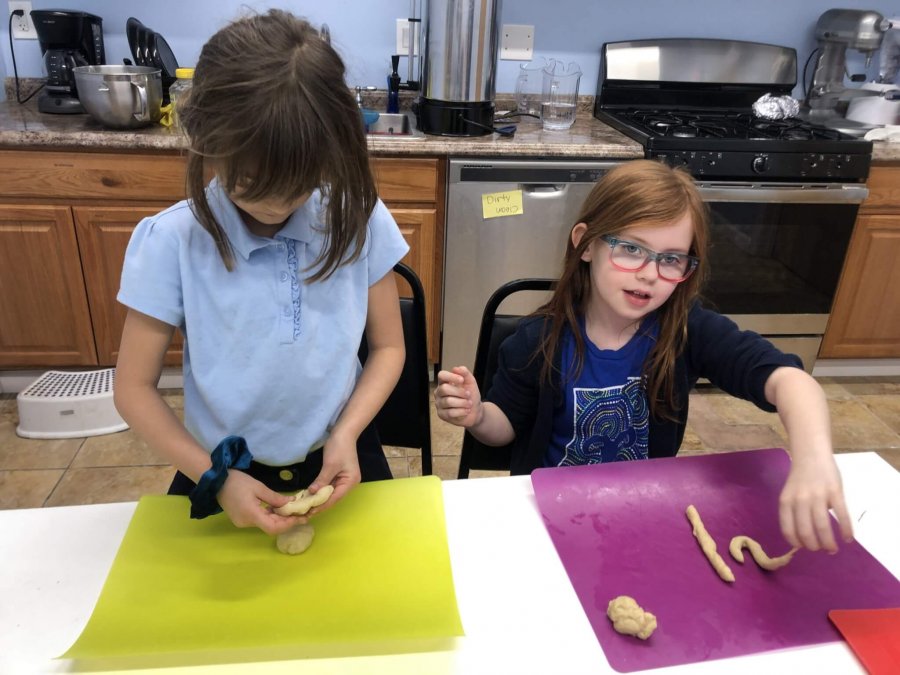
Garinim
Here we are, gathered together at the end of a long and harrowing journey, looking over a river into a new land. By “we” I really mean “Bnei Yisrael (the Jewish people).” They’ve traveled for 40 years in the desert from slavery in Egypt to freedom in Canaan, and now they’ve learned that they have to take their next steps without their steadfast leader Moshe. Last week the Garinim (preK and K kiddos) unpacked the final scenes of the Torah: the brachot (blessings) Moshe offers each tribe of Bnei Yisrael before they cross over into Canaan and Moshe’s death. Here are some highlights from our week.
In the preamble to his brachot, Moshe describes God as a lover of people. We looked at a commentary that focused in on this idea of people being precious to God. What does it mean for something to be precious? What things are precious to us and why?
- The blanket that my grandma made for me because she’s really special to me.
- Elmo is precious because he’s one of my first stuffies.
- The caterpillars we got to watch grow into crystallises and then butterflies because we just got them and we have to take really good care of them.
- My ballerina mouse because my grammy got it for me for Christmas.
- My parents because they had me.
- Elmo because he’s so soft.
- George because he’s so cuddly.
- The blanket my grandparents made for me.

Then we dove into the content of Moshe’s brachot to the tribes. Each one was different, tailored specifically to its respective tribe based on personality, strength, and need. Here are some brachot we imagined for our stuffies based on their personalities, strengths, and needs:
- For Elmo, who cries a lot: to always have the time and space let his tears and feelings out whenever he needs to cry.
- For Baby, who is good at walking and gymnastics and was able to walk all the way to the doctor: to walk to where you need to go to take care of yourself.
- For Astrid, who is good at taking care of Elmo when I’m doing something else: to step up to be a good caretaker when no one else is around to do it.
- For Taco pillow: to keep being a tasty, giant taco.
And then we were finished, both with all the new content we’re doing this school year and with the last bit of the last book of the Torah. Whenever we finish a book of Torah during readings at a synagogue, the congregation responds with “chazak, chazak, venitchazek – be strong, be strong, and we will be strong.” What are different kinds of strength that people can have? What are ways that we are strong?
- I am strong because I can carry a green chair all by myself.
- I’m strong because at school I can carry a 4 year old all by myself and walk.
- I am strong because I can help my brother with my words.
- I am a strong swimmer.
I hope we can take the strength from the wisdom of all the learning we do together and use it whenever we need it in the weeks and months ahead.
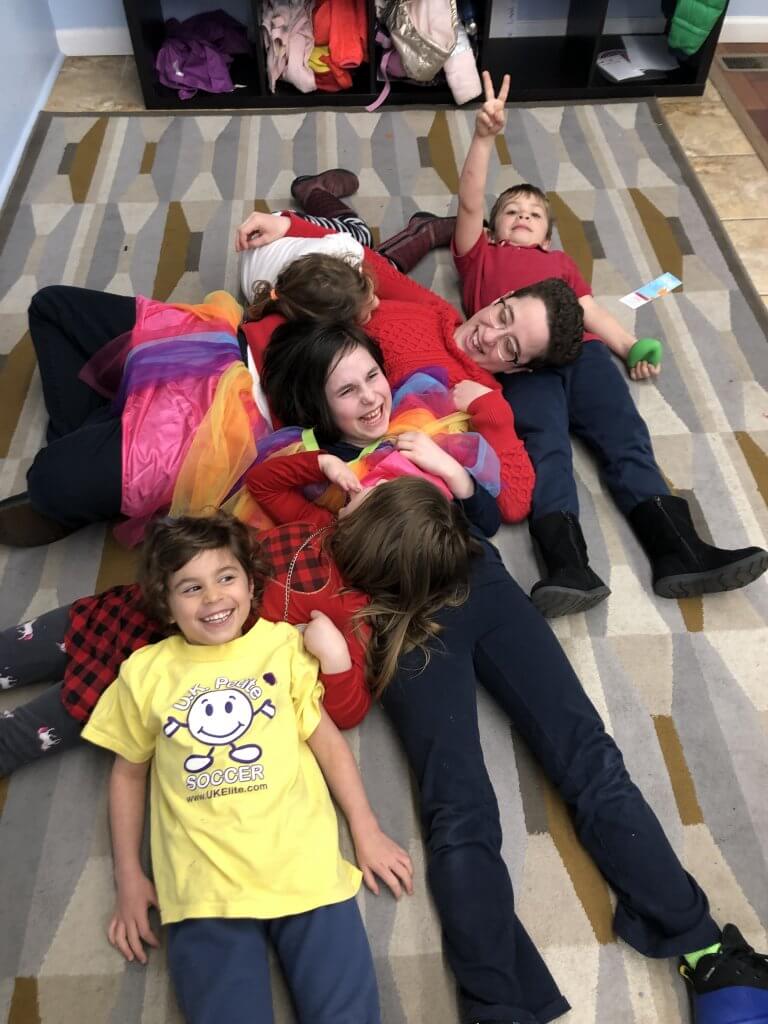
Shorashim and Nitzanim
Last week the Shorashim (1st graders) and Nitzanim (2nd-4th graders) both took a deep dive into transitions. We finished the final story in the Torah, and then moved on to the first story in Nevi’im (Prophets). At the very end of the Torah, Bnei Yisrael finally makes it to the land of Israel after 40 years of wandering in the desert. Before they can enter however, Moshe dies, leaving Yehoshua in charge. There’s a lot for Bnei Yisrael to figure out and adapt to. Like in the stories from our texts, there are a lot of transitions happening right now: we are about to end the school year, we’re entering summer, and our city is starting to open back up again.
How might you have felt as Yehoshua, taking on the role of leader for Bnei Yisrael after Moshe’s death?
- He might be feeling scared. But when Moshe started he was kinda nervous, but [Yehoshua] has seen Moshe’s strategy. So he has seen what to do and what not to do, and he uses those things to learn how to be a leader.
- You could feel nervous because it might be a new thing and you don’t know totally much about it but you know about it. You don’t know if you can do it like the first leader did.
- It’s okay to be scared when you try something new.
- Scared because it can be a new thing and maybe you aren’t used to that thing. It can get less scary cause you get used to it.
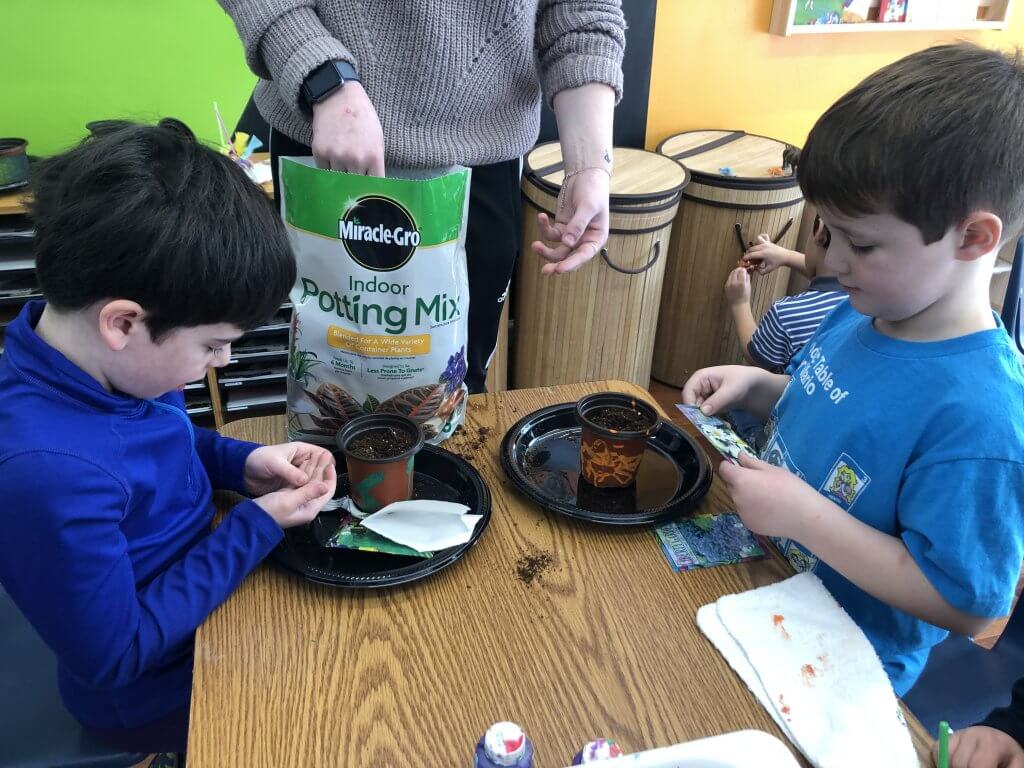
We realized what a huge transition this was for Bnei Yisrael. “It’s a new entire place they have never been before and they have been traveling for more than forty years it’s gonna be a different life. They won’t be walking and suffering. They will be in a new home and they will have things to do. They can live free lives, no one is saying you have to do this you have to do that, except maybe parents to their kids.”
What are some other examples of transitions?
- Going from the school year to the summer.
- Going from one grade to another.
- Before quarantine we were able to see each other and hang out, but after quarantine we can’t do that.
- We can change as we get older. Before I wasn’t reading Nancy Drew books, but now I read them all the time.
- Going from my old house with two floors to my new house with four floors.
- Sun to moon.
- Life to death.
- Upside down to right-side up.
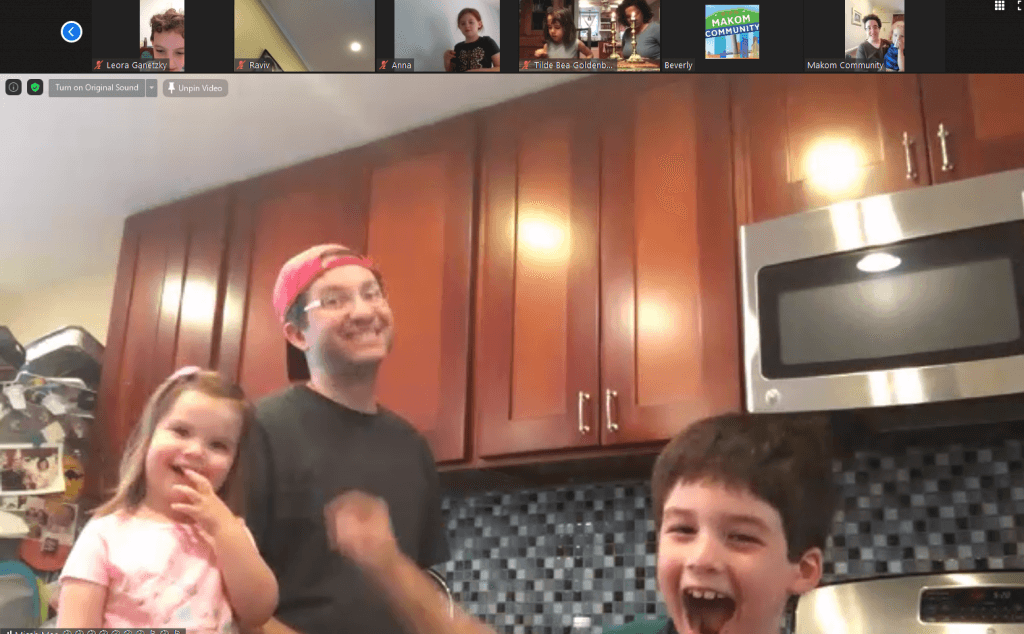
Transitions that we all go through, like birthdays and life cycle events, are often celebrated by different families in different ways. How do we mark transitions in our own lives?
- I mark my birthday by celebrating it and by being with other people.
- On the morning of my birthday my mom always sneaks into my room and puts up a sign and takes my picture.
- My cousin’s bat mitzvah had a lot of screaming kids and happiness.
- Probably every day is someone’s birthday but we don’t know who those people are. If it’s something like getting married but only the people who you tell will know.
- Our teachers tell us about transitions. But in quarantine our teachers aren’t here.
- I’ve had house transitions like moving lots of times but there’s also things at school. It’s not really big but on the last day in my school in New York, we had a play including every single person with all the kindergarten students on the last day.
- At my school we know it’s going to be summer because we just relax and do art.
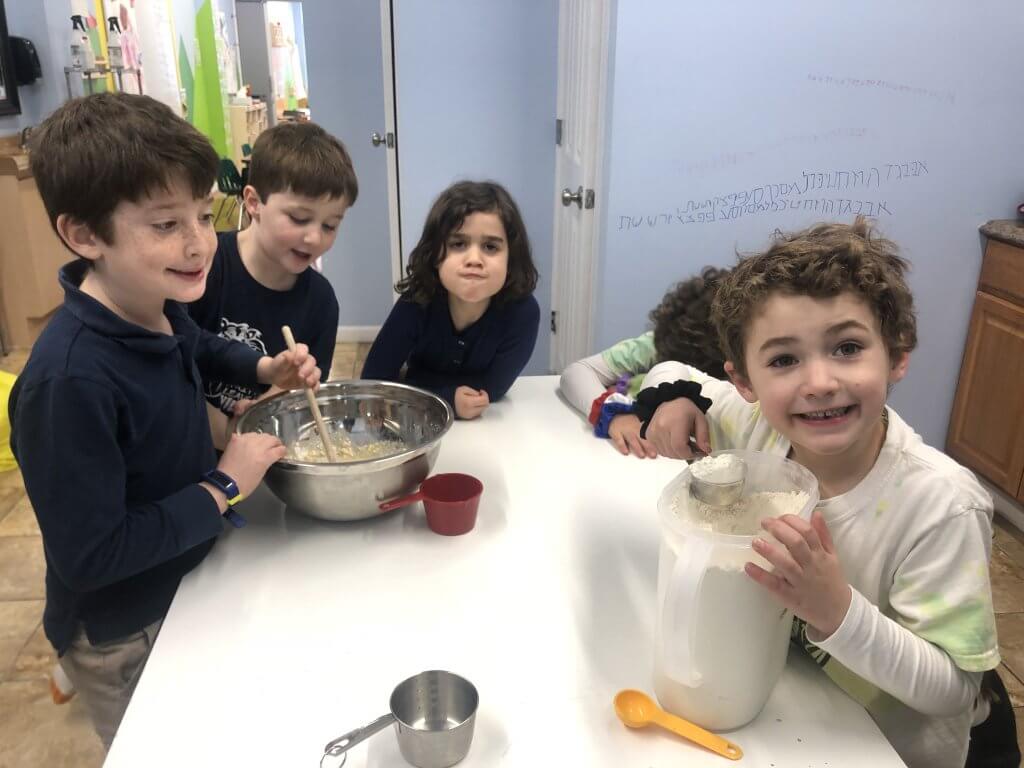
We also noticed that a whole range of feelings accompany transitions depending on the situation and our mindset. Do you think it’s easy or hard to go through transitions?
- Kinda both, but birthdays are easy and happy and fun.
- Bar and bat mitzvahs are a happy transition, but can be hard to study for.
- Weddings are a happy transition because you’re showing someone you love them.
- Someone dying is a harder transition because you’re losing someone.
- Going into a new grade can be hard.
- Most transitions are hard because most of my transitions are moving. But some are easy like moving to first grade cause I want that transition. As long as I want it, it is not that hard to do it
- Depends on what type of transition. Some things are easy and don’t make that big of a difference. Like switching your pajamas or clothes that’s not a big deal. But switching from pennies to quarters can be a big difference because you need to save up more.
- Some transitions are too far away to prepare for them or think about them.
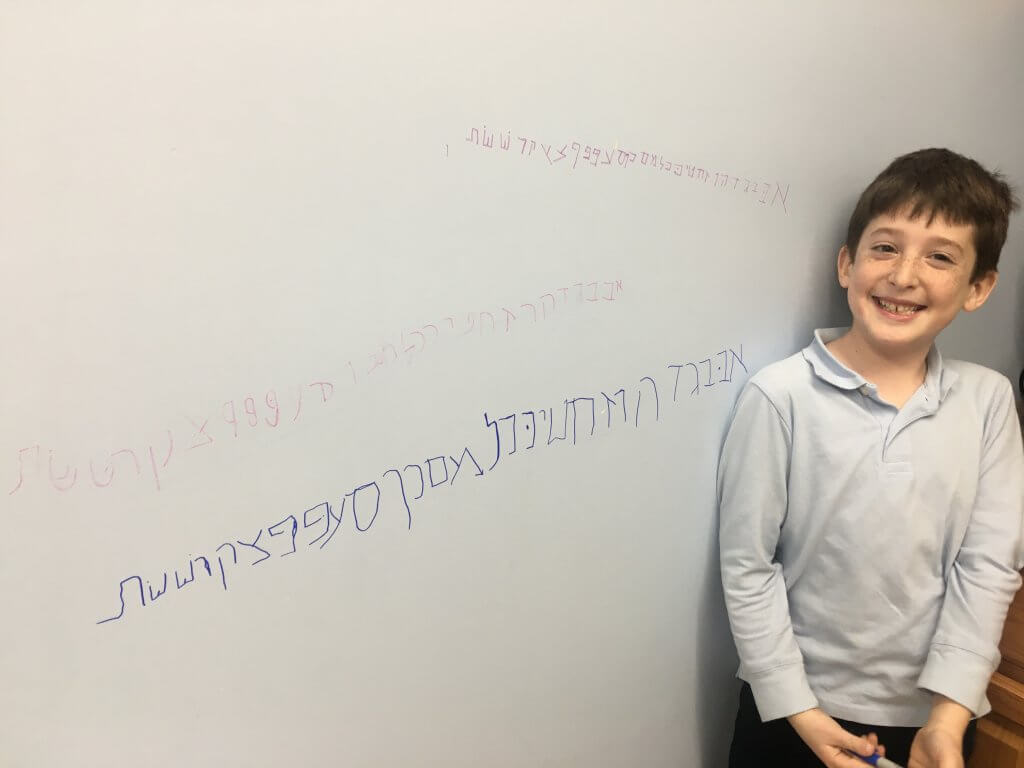
We tied our conversations about transitions into our discussion on strength.Two weeks ago we had noticed that there were lots of different kinds of strength, not just physical strength. Some of these other kinds of strength (mental, emotional, protection) can help us when we’re going through something difficult, like a hard transition. What are some strategies we can use to help us feel more chazak (strong) and amatz (resolute and determined) during times of transition?
- Just keep going and ask for help along the way.
- Keep some normal things during a transition.
- Try and make the best of it and adapt.
It was wonderful to hear the kiddos reflect on all of the big transitions in their own lives and connect it back to Torah. We can clearly see that these strategies—asking for help along the way, keeping some things steady and normal—have been used by our kiddos (and us!) in these past months. Even with all of the changes and adjustments they have had to make, they have continued to learn and play and make space for joy amidst uncertain times. May we move from this school year to whatever lies ahead together, chazak ve’amatz (strong and resolute).
